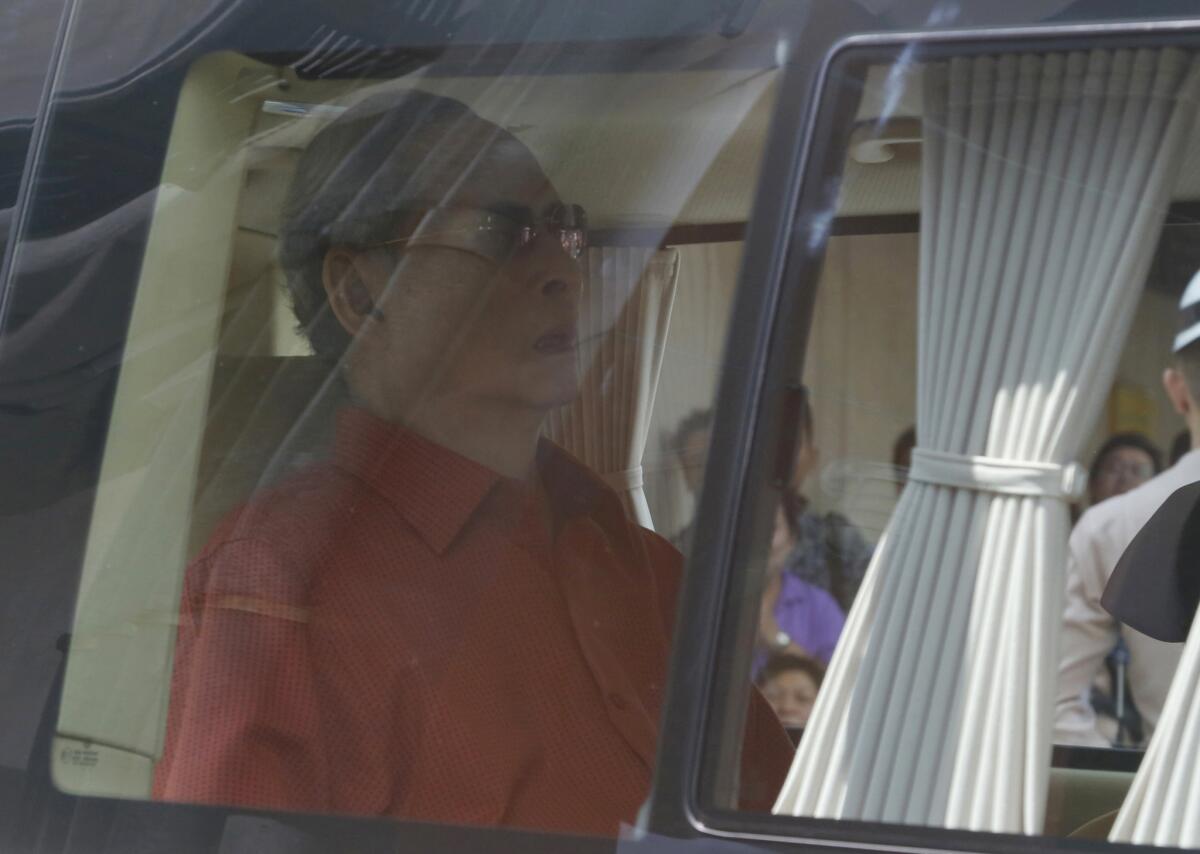Health of Thailand’s 88-year-old king is deteriorating

The health of Thailand’s ailing 88-year-old king has deteriorated and his condition is unstable, the palace said, adding to concerns about the eventual succession of the monarchy.
Doctors performed a hemodialysis on King Bhumibol Adulyadej to purify his blood and changed a tube that drains excess cerebrospinal fluid during a 2 ½-hour procedure, the palace said in a statement late Sunday.
“The medical team are watching his symptoms and giving treatments carefully because the overall symptoms of his sickness are still not stable,” the statement said.
Previous statements have said the king’s kidneys are not functioning properly.
Bhumibol, the world’s longest-reigning monarch, has been hospitalized for much of the last decade. Because Bhumibol, who turns 89 on Dec. 5, has been king since 1946, there is great concern about his eventual succession by Crown Prince Vajiralongkorn, who has not earned the same respect as his father.
Thailand’s main stock index fell 2.9% Monday, and the Thai baht sank to a two-month low against the dollar.
Though Bhumibol is a constitutional monarch with no formal political role, he has generally been regarded as Thailand’s unifying figure. However, as his health has deteriorated, his participation in public affairs has sharply declined in recent years.
Concern about succession has been entwined with Thailand’s political turmoil in the last decade, as royalists have sought to ensure that they control the process instead of certain politicians whose fealty to the monarchy they doubt.
Sunday’s statement said the hemodialysis procedure and the replacement of the tube were carried out on Saturday. After that procedure, the palace said, the king’s blood pressure dropped. It was brought back to normal after he was put on a ventilator and administered medication, the statement said.
Early Sunday, the king’s pulse was faster and an inspection found higher levels of acid in the blood, the statement said. An echocardiogram found a sharp drop in blood injected into the lower left chamber of his heart as a result of high blood pressure in the lungs.
Subsequently, medicines were administered to enlarged blood vessels in the lungs, which led to the improvement of the pulse and blood pressure, the statement said.
MORE WORLD NEWS
Palestinian gunman kills 2 and wounds 5 in Jerusalem, then is fatally shot
Will Putin get his way in neighboring Georgia? Elections test how far Russia radiates its power
India and Pakistan are clashing again over Kashmir. Here’s what you need to know
More to Read
Sign up for Essential California
The most important California stories and recommendations in your inbox every morning.
You may occasionally receive promotional content from the Los Angeles Times.










